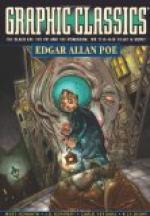|
This section contains 5,450 words (approx. 19 pages at 300 words per page) |

|
SOURCE: Hume, Beverly A. “Poe's Mad Narrator in Eureka.” Essays in Arts and Sciences 22 (October 1993): 51-65.
In the following essay, Hume refutes criticism that assumes that Poe himself is the narrator of Eureka, and suggests rather that the narrator is a madman created by Poe.
Edgar Allan Poe's critics generally regard Eureka as seminal to a proper understanding not only of the anomalies in Poe's poetic and prose fictions, but also of the metaphysics or philosophy which informs them. Here, however, agreement ends. Some argue that Eureka reveals a concern for moral or theological issues; others that it offers a romantic nihilism or materialism; and still others that it mocks both philosophical and scientific inquiry.1 Critics differ also on primary sources for Eureka, and Poe is variously credited with relying on the early cosmogonic poetry of the Greeks; on Alexander Von Humboldt's then popular Cosmos; on scientific thought...
|
This section contains 5,450 words (approx. 19 pages at 300 words per page) |

|


